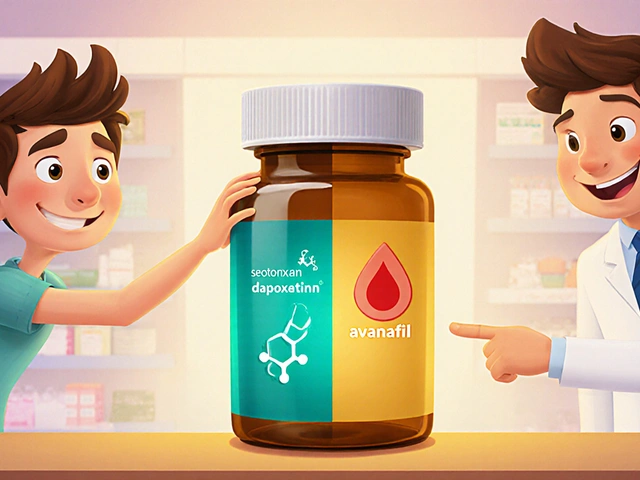Risks: Medication Safety, Online Pharmacies & Side Effects
Every medicine has risks. Some are common and mild, like a stomach upset. Others are rare but serious, like allergic reactions or dangerous drug interactions. Knowing the main risks helps you use medicines smarter and avoid harm.
One big risk is buying drugs from unreliable online pharmacies. Fake or expired drugs can be useless or harmful. Red flags include prices that seem too good to be true, no physical address or pharmacist contact, and sites that skip asking for a valid prescription.
Before you order online, check for a license or accreditation. In the US, the NABP VIPPS seal or a state board listing matters. In other countries, look up the national regulator. Call the pharmacy if you have doubts. Pay with a card that offers fraud protection and keep records of your order and tracking number.
Fake products can be obvious or sneaky. I once read complaints about steroid vials bought from sketchy sites that were contaminated, causing infections. Antibiotics sold as cheap generics might have wrong potency, risking treatment failure and resistance. Insulin exposed to heat loses strength fast; patients who keep a spare vial in a hot car may not get the dose they expect. If a tablet looks, smells, or tastes different, stop taking it and ask your pharmacist. Keep packaging and batch numbers — pharmacies and regulators need that to trace problems.
Side effects and interactions
Side effects are the most common risk people face. Read the leaflet and focus on serious warnings: allergic signs, signs of liver trouble, breathing problems, or severe rash. Also watch for interactions. Tell your doctor and pharmacist about all medicines you take, including vitamins and herbal supplements. A simple combination, like an antibiotic with a blood thinner, can change how your body handles a drug and lead to bleeding or other harm.
Keep a medication list on your phone. Update it after every new prescription or over-the-counter purchase. This helps any provider spot dangerous overlaps fast.
Safe use at home and when to seek help
Store medicines as labeled. Insulin and some biologics need refrigeration. Heat or moisture can destroy pills and change their effect. Never split or crush pills unless a provider tells you it is safe. Use a pill organizer for daily doses but keep original bottles for dosing and expiration information.
Call your doctor or emergency services if you get trouble breathing, swelling of face or throat, high fever, fainting, severe chest pain, or sudden severe weakness. For less urgent problems, contact your pharmacist; they can often explain side effects and suggest safer timing or alternatives.
Report bad reactions and counterfeit drugs. In many countries you can report to national regulators or watchdogs. In the US, use FDA MedWatch. Reporting protects you and helps others by flagging dangerous products.
Never share prescription medicines; doses are tailored to one person and can harm someone else. Always.
Small steps cut big risks: verify pharmacy credentials, keep an up-to-date medication list, read warnings, follow storage rules, and ask questions. These habits keep treatments effective and reduce chances of harm while saving you time and worry.

Escitalopram and Pregnancy: What You Need to Know
As a blogger, I feel it's essential to discuss the topic of Escitalopram and pregnancy. Many women have concerns about the safety of taking this antidepressant while pregnant. From my research, it appears that the risk of birth defects is low, but there may be some potential risks to the baby. It's crucial for expectant mothers to consult with their healthcare provider to weigh the benefits and risks before making a decision. Remember, it's all about finding the best balance for both mom and baby's well-being.
Categories
- Medications (71)
- Health and Medicine (62)
- Health and Wellness (37)
- Online Pharmacy Guides (16)
- Nutrition and Supplements (9)
- Parenting and Family (3)
- Environment and Conservation (2)
- healthcare (2)
- prescription savings (1)



